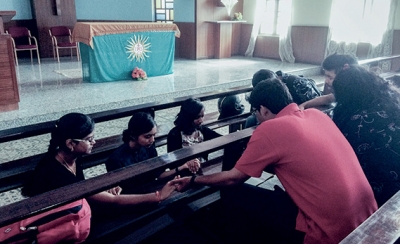Prayer for Churches in India

The Church in India is highly diverse, has a long legacy and is, at the same time, vital and growing, and nominal and declining. Much of Indian Christianity is the result of people movements over the past 300 years, punctuated by local revivals. In many denominations, it remains in Western forms. Liberal theology, universalism and growing nominalism in the Church have dried up the spirit of outreach to the millions of non-Christians. Many congregations have no first-generation believers from a non-Christian background. Disputes over personalities, power and property have led to many divisions, court cases, widespread disillusionment and continuous loss of young people to materialism. At the same time, steady streams of Christians transfer from these groups to newer, more dynamic Independent churches. Pray that present pressures and the work of the Holy Spirit might bring new life to traditional forms of Christianity.
a) The Orthodox Churches are the oldest expressions of Christianity in India, tracing their heritage back to the tradition of the Apostle Thomas, who reputedly ministered and was martyred here in the 1st Century. Orthodox Christians number in their millions, and many denominations of other confessions are also heavily influenced by the Thomist tradition. These groups are rooted strongly in Kerala and southwest India.
b) Catholics represent the largest single body of Christians in India with nearly 20 million affiliates. They are known for their charitable work - most notably Mother Teresa's legacy among the poorest of the poor and the more than 5,000 Catholic-run health-care facilities, comprising more than 20% of India's total.
c) The need for change in the Church is urgent and has never been greater. Pray for:
i Unity. The National United Christian Forum brings together the Catholic Bishops' Forum, the National Council of Churches and the Evangelical Fellowship. The All India Christian Council serves Christians of all denominations, with over 5,000 agencies, NGOs, denominations and institutions working for human rights, social justice, religious freedom and protection of minorities. A spirit of divisiveness characterized the past; now, unity is greater than ever before, in part due to hostility from external forces. Pray for unity to mature and to endure. Greater cooperation and accountability are needed between local churches and sending agencies.
ii Indigenization of Church culture, structure and expression - for too long, churches have relied on foreign cultural forms.
iii Greater reliance on an Indian model of cell/house churches rather than on Western-style modes and places of worship.
iv Effective discipling - through coordinated, collaborative efforts - of the many being impacted by any one of the multiple methods of evangelism. Many new believers come to faith through large rallies, healings or miracles, but opportunities are few for Christian instruction to strengthen and sustain them in their faith.
v More relevance in impacting the mainstream of national life. The Church is seen as linked to the marginalized, deprived sections of society. Business, politics, arts, culture and the middle and upper classes - all shapers of Indian society - have not yet been impacted by the gospel.
The source of this article is from Operation World



